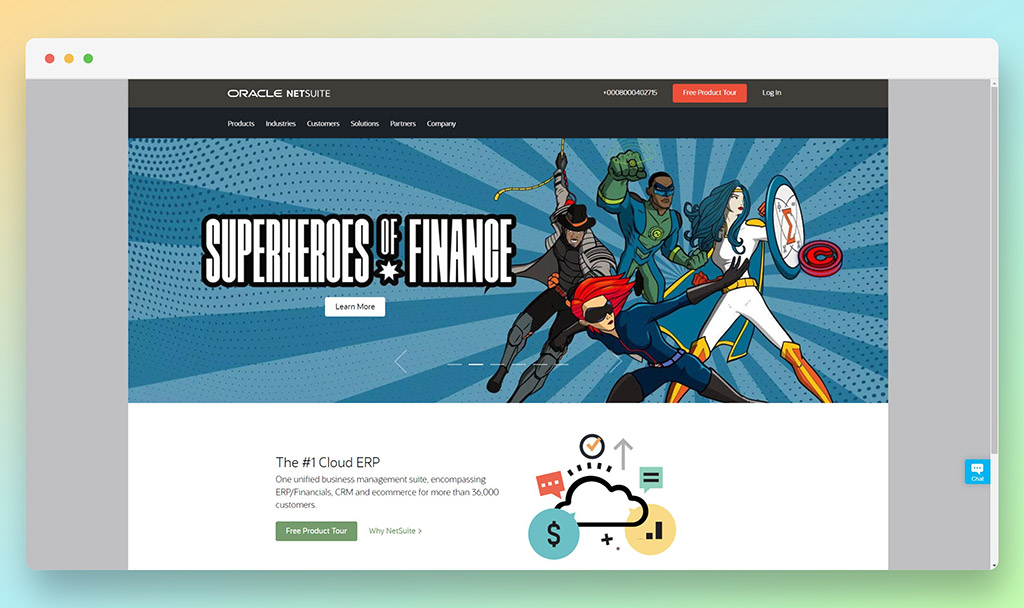An omnichannel ecommerce platform could be an incredible resource for any business looking to scale into new markets and sales opportunities. In fact, by 2030, the omnichannel retail commerce platform market is set to reach a value of $14.3 billion.
We’re living in a world where the buyer journey is changing at an incredible pace. Consumers don’t just visit physical stores, websites, or apps to make purchases anymore. They interact with retailers on a variety of channels, for different reasons.
Some consumers prefer to search for products on marketplaces like Amazon and Etsy, others buy directly through social media. The more channels you can engage with, the more potential revenue you can make. However, managing an omnichannel sales strategy, without the right technology, can be complex. That’s where omnichannel ecommerce platforms come in.
In this article:
What is an Omnichannel Platform?
The term “omnichannel platform” can refer to any software solution that allows companies to leverage multiple channels for communicating with, serving, or selling to customers. In the ecommerce landscape, an omnichannel platform provides companies with the tools they need to create seamless buying experiences for customers in a range of different environments.
For instance, companies can use these platforms to connect with customers and sell products on their own line store, through social media, on marketplace platforms, via mobile apps, and even in a physical environment with point-of-sale integrations.
Omnichannel ecommerce platforms help to maximize potential customer touchpoints, and minimize the effort you need to exert on the backend of your ecosystem as a business owner. Omnichannel solutions can even integrate various tools used to manage your business, such as ERP systems, retail management tools, ecommerce platforms, and marketing software.
Crucially, omnichannel solutions also improve customer experiences. Some studies show that companies using omnichannel tactics report 23 times higher customer satisfaction rates. By comprehensively aligning all of your sales channels and tools, omnichannel platforms give you a more scalable, efficient way to expand your sales potential.
What are the Best Omnichannel Ecommerce Platforms for 2023?
Omnichannel ecommerce platforms come in a variety of different forms, intended to address numerous business needs.
Most of these solutions are intended for enterprise-level or larger companies, looking for rapid scalability.
We’ve examined some of the top platforms for omnichannel selling on the market today, to bring you the best solutions for your brand.
1. Shopify Plus

Shopify Plus is the enterprise-level solution offered by the world’s leading ecommerce platform: Shopify. With Shopify Plus, you can create a responsive online store, ready to convert customers on any device, connect with customers over 100+ social media channels and 90+ online marketplaces, and even automate marketing and sales campaigns with Shopify Flow.
Shopify Plus also empowers companies to bridge the gap between online and offline retail, with Shopify POS solutions for in-person selling. What’s more, with headless commerce, you can start selling on any smart device, screen, or voice powered technology, with custom channel apps, APIs, and Shopify Plus partner connections.
Whether you’re selling via websites, social platforms, mobile apps, marketplaces, or pop-up and brick and mortar stores, Shopify offers a unified, synchronized admin panel for all locations. Plus, you’ll have access to a host of integrations and add-ons via the Shopify marketplace, to increase sales opportunities and enhance your marketing campaigns.
Pricing
Shopify Plus packages are custom priced for each store owner, based on your specific needs, setups, and configurations. Most packages start at around $2,000 per month, for standard solutions and integrations, but there are various other variable fees that can add to your costs. You’ll need to speak to a Shopify Plus Expert for details.
Pros 👍
- Flexible headless commerce for unique sales experiences
- Integrations with dozens of social media tools and marketplaces
- End-to-end customer service and support from experts
- Unified admin panel for controlling all of your channels
- Vast marketplace with add-ons for sales and marketing
- Highly customizable product pages and themes
Cons 👎
- Complex initial setup for beginners
- Pricing can be expensive for smaller companies
2. BigCommerce Enterprise

BigCommerce is another leading SaaS solution that offers access to omnichannel sales tools within its Enterprise package. The platform benefits from exceptional ease of use, as well as a host of built-in features for managing inventory, orders, and syncing data across your store environments.
BigCommerce Enterprise provides access to unlimited API calls, so connecting different channels is extremely simple, and there are even headless tools for building customized sales experiences.
To specially serve omnichannel vendors, BigCommerce partnered with “Feednomics”. The collaborative solution allows companies to reach customers across more than 150+ leading marketplaces, advertising channels, and social commerce tools. With BigCommerce, you get all the features you need to unify data, reduce listing errors, and automate your product catalog anywhere. Plus, there are endless tools for website customization, marketing, and offline selling too.
Pricing:
Like many enterprise tools for ecommerce, BigCommerce offers it’s omnichannel solution on a per-quote basis. Your pricing will be based on your specific needs for customer support, specialist integrations and innovative services. However, you can benefit from special credit card rates on the Enterprise plan, to save you some extra cash.
Pros 👍
- Easy-to-use backend for building store connections
- Support for headless, B2B, wholesale, and other commerce options
- Automated syncing of product and inventory data
- Unlimited API calls for integrations
- Strategic account management support from experts
- Special rates on credit card transactions
Cons 👎
- No transparent pricing
- Some features may have a slight learning curve
3. SAP Commerce Cloud

Named a leader in digital commerce solutions by the Gartner Magic Quadrant, SAP Commerce cloud is an enterprise-level cloud-native solution offered as part of the SAP ecosystem. With this intelligent toolkit, companies can build an extensible end-to-end sales solution, with a microservices-based design, and API-first architecture.
At the same time, SAP’s powerful software provides exceptional site availability and performance, and a streamlined integrated office environment for business management. The platform supports intelligent personalization, composable commerce tools, and automated integration for every channel, so you can sync data across multiple platforms.
SAP Commerce Cloud makes it easy to unify customer, product, and inventory data, so you can deliver more contextual customer experiences. It also incorporates digital and physical customer touchpoints, so you can sell on social media, marketplaces, and in brick and mortar stores. You can even track customer journeys across various channels.
Pricing
SAP Commerce cloud is a custom-built solution for large enterprises with advanced sales requirements. The headless solution is offered on a per-quote basis, with pricing customized to your specific business needs. There may also be additional costs for some third-party solutions and integrations to consider.
Pros 👍
- Exceptional levels of customization for all platforms
- Powerful synchronization for customer, product, and transaction data
- Integrations with SAP solutions and third-party services
- In-built customer journey tracking and CRM tools
- Headless commerce for customized sales experiences
- End-to-end support available from technical experts
Cons 👎
- Complicated initial setup for beginners
- Can be quite expensive as it’s intended for large enterprises
4. Adobe Commerce

Formerly Magento, Adobe Commerce is an all-in-one ecommerce platform, offered as both a self-hosted, and open-source solution. Adobe aims to give businesses a “channel-less” experience for ecommerce, allowing them to natively integrate all of their sales experiences into a cohesive environment. The platform includes cross-channel business intelligence, APIs and integrations, and end-to-end order management tools.
With Adobe Commerce, companies can manage numerous brands, geographic websites, and sales channels from a single platform. As well as automating various back-end workflows for business owners (such as product synching and catalog updates), Adobe Commerce also offers tools for delivery management, customer targeting, data analysis, and personalized product suggestions.
The Adobe Commerce solution also features a flexible order fulfilment system, capable of connecting online and offline sales tools. This ensures business leaders can integrate their online stores and social channels, with offline environments and POS systems.
Pricing
Adobe Commerce is offered in two different packages. The first option is Adobe Commerce Pro, designed for merchants of any size and business model. The second solution is the “Managed Services” plan, which includes access to expert-level cloud infrastructure resources, support, coaching, escalation management, and application monitoring. Both plans are offered on a per-quote basis, depending on the needs of your store.
Pros 👍
- Support for all B2B and B2C selling options
- Excellent range of customization options for digital experiences
- End-to-end fulfillment and order management tools
- Support for multiple payment methods
- In-depth analytics and insights
- Highly flexible integrations and APIs
Cons 👎
- No transparent pricing options
- Complicated initial setup
5. Netsuite

Nesuite is a comprehensive cloud-based software provider, offering a wide range of services, platforms, and solutions to business leaders. With Netsuite’s “SuiteCloud” selection of tools, companies can access a comprehensive retail solution, intended to unify various ecommerce platforms and business management tools.
The mobile-optimized SaaS solution offers access to tools for integrating and aligning your ecommerce store, customer service tools, point of sale system, financial data, and more. You can even align all of your manufacturing, wholesale, and supply tools, for a unified, 360-degree view of your business. Plus, there are valuable dashboards and reports for analytical insights.
NetSuite’s solution integrates with a variety of crucial operating systems, so you can monitor customer data, orders, and inventory in the same place. Plus, the company offers access to dedicated customer support experts, to help you build the ultimate sales strategy.
Pricing
Like most enterprise ecommerce solutions, NetSuite’s services are priced per-quote, based on a number of factors, including your required add-ons, total number of customers, ERP setup and contract length. You can expect to pay a decent amount for this service however, as it’s intended for high-level enterprise companies.
Pros 👍
- Wide range of analytical tools and insights
- Mobile optimized solution for managing platforms on the move
- 360-degree visibility into customers, inventory, and products
- Powerful integrations with a range of ecommerce tools
- Exceptional reliability and security features
- Access to high-level customer support
Cons 👎
- Expensive pricing compared to some alternatives
- Custom integrations can be difficult to implement
Choosing the Best Omnichannel Ecommerce Platform
The best omnichannel ecommerce platform offers business owners an opportunity to differentiate themselves in today’s competitive landscape. With the right toolkit, you can not only improve your ability to sell across different channels and platforms. You can also provide your customers with a consistent experience that increases sales and loyalty.
Just keep in mind, omnichannel platforms, like the ones mentioned above, are designed for larger enterprise-style companies. The chances are you’ll pay a lot more per month for one of these solutions than you would a standard multi-channel ecommerce platform.
The good news is that if you use your service correctly, you could end up offsetting the costs of your new solution with higher profits too.




Comments 0 Responses